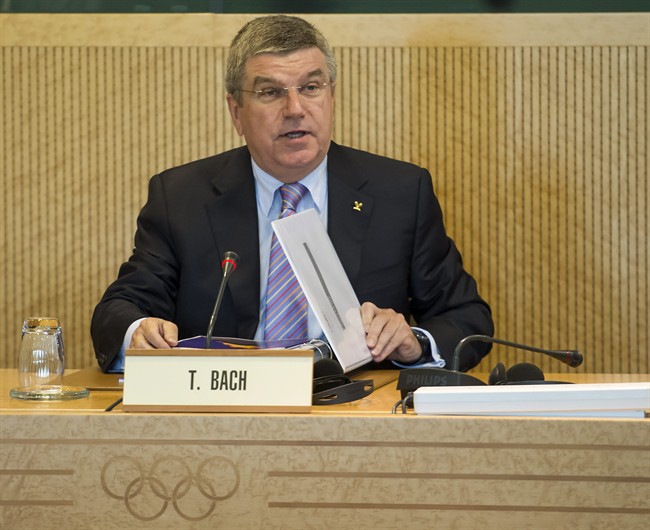LAUSANNE, Switzerland – As the IOC sought to dispel concerns the Olympics are too expensive, two former host cities and one former also-ran advanced to the final phase Monday in the troubled race for the 2022 Winter Games.

Left with little choice following the previous withdrawal of three candidates, the International Olympic Committee on Monday retained the three cities that were still alive.
The Kazakh city of Almaty, Beijing and Oslo made the list of finalists. Whether Oslo stays in until next year’s vote remains uncertain.
The IOC executive board agreed unanimously to approve all three as official candidate cities, rather than cut the field.
“Three is a good number to go forward,” IOC vice-president John Coates said.
The candidates must submit their detailed bid files to the IOC by Jan. 7. A panel of experts will then visit the cities next February and March, and the full IOC will decide the winner on July 31, 2015, in Kuala Lumpur, Malaysia.
An IOC working group report released Monday gave Oslo the highest technical ratings. The Norwegian capital led in eight of the 14 categories and was tied with Beijing in three. Almaty was last in 11.

Get daily National news
Oslo hosted the 1952 Winter Olympics, and Norway held the 1994 Games in Lillehammer. Beijing, which staged the 2008 Olympics, is seeking to become the first city to host both summer and winter games. Almaty bid for the 2014 Winter Games, but failed to make the final short list.
“The IOC is very happy to see three very different approaches,” IOC President Thomas Bach said. “This gives the IOC a choice among three diverse bids with different legacy plans, with different approaches, with different budgets.”
Bach said the IOC will contribute about $750 million to the host city and expressed confidence that local organizers will break even or make a profit.
He cited a projected $200 million surplus for Russian organizers from February’s Winter Olympics in Sochi on their $2 billion operating budget, which covers games costs only.
However, potential host cities — especially in Western Europe — have been scared off by the overall $51 billion price tag for the Sochi Games, even though Russia spent much of that record sum on long-term infrastructure projects. Bach said the IOC must do better in explaining the different budgets.
The 2022 bid race began with six cities, but has been cut in half by the withdrawals of Stockholm; Krakow, Poland; and Lviv, Ukraine. Earlier, potential bids from Switzerland and Germany were abandoned when voters said no in referendums.
In an unusually blunt admission, a top IOC official said the organization was to blame for not better explaining the financing of the games.
“That’s the lesson from this campaign here — we lost good cities because of the bad perception of the IOC, the bad perception of how the concept could be done,” IOC executive director Gilbert Felli said. “We have to learn our lesson. The one to be blamed is the IOC.”
Lviv dropped out a week ago amid the continuing political turmoil in Ukraine. Krakow pulled out in May after Polish voters rejected the bid by a 70 per cent margin. Stockholm withdrew in January after Swedish politicians refused to give the bid financial backing.
The Norwegian government will decide this autumn whether to back the Oslo bid. The IOC report cited two recent polls showing only 36 per cent of Norwegians support the project.
Bjorn Daehlie, the Norwegian cross-country ski great who won 12 Olympic medals, said Norwegians need to be convinced that the games can be staged for a “reasonable amount of money.” He said Bach’s recent visit to Norway dispelled some misconceptions.
“They thought all this money went into a big sack in Lausanne and these guys were driving around in these black cars spending this money,” he said.
___
Follow Stephen Wilson on Twitter: http://twitter.com/stevewilsonap






Comments